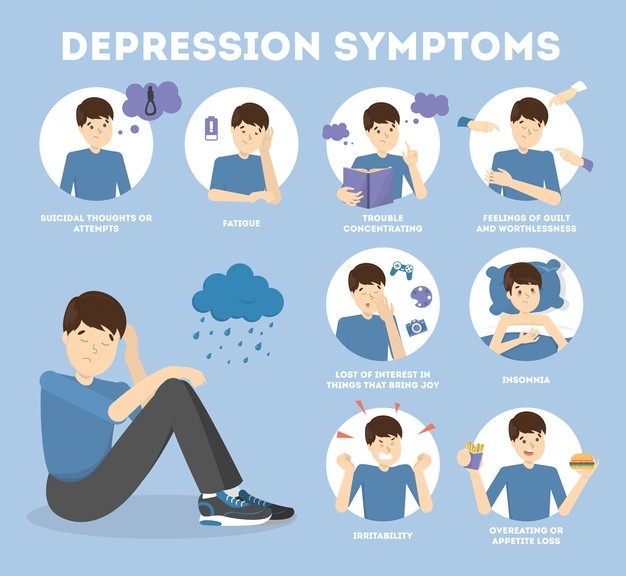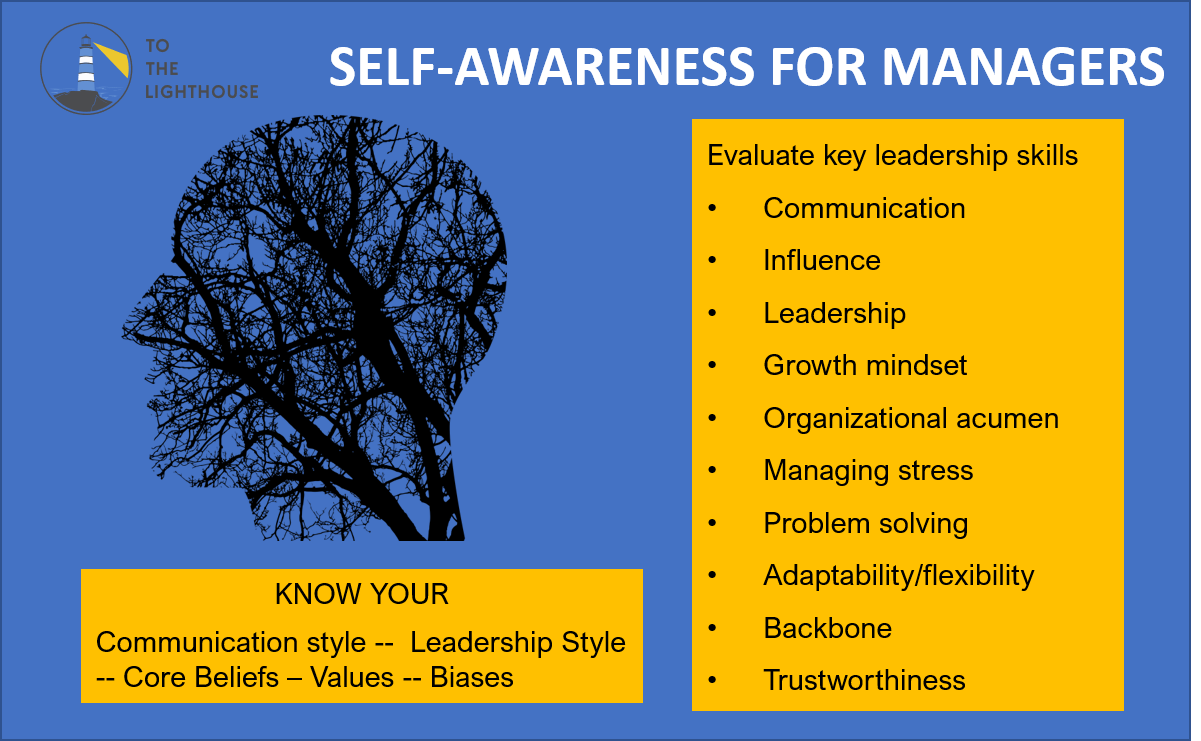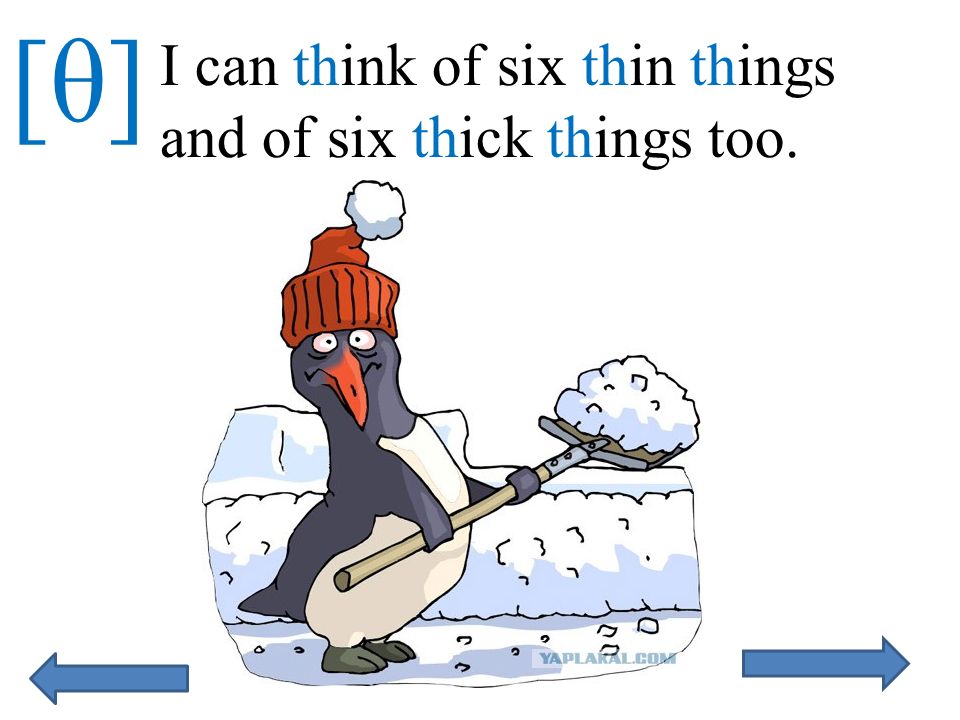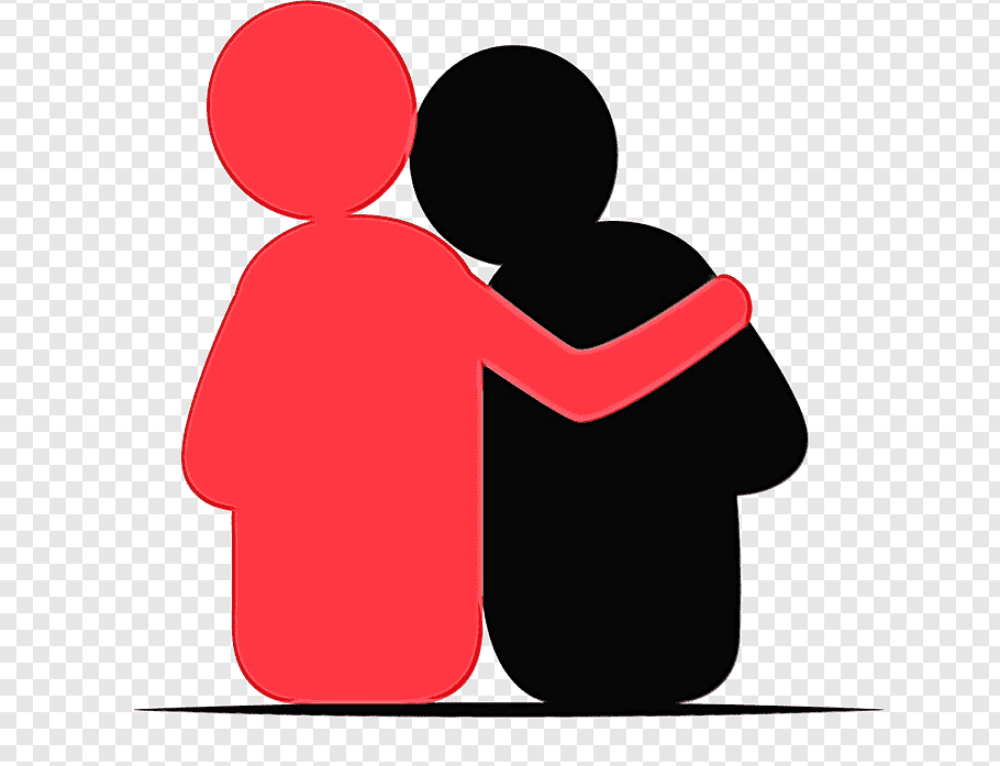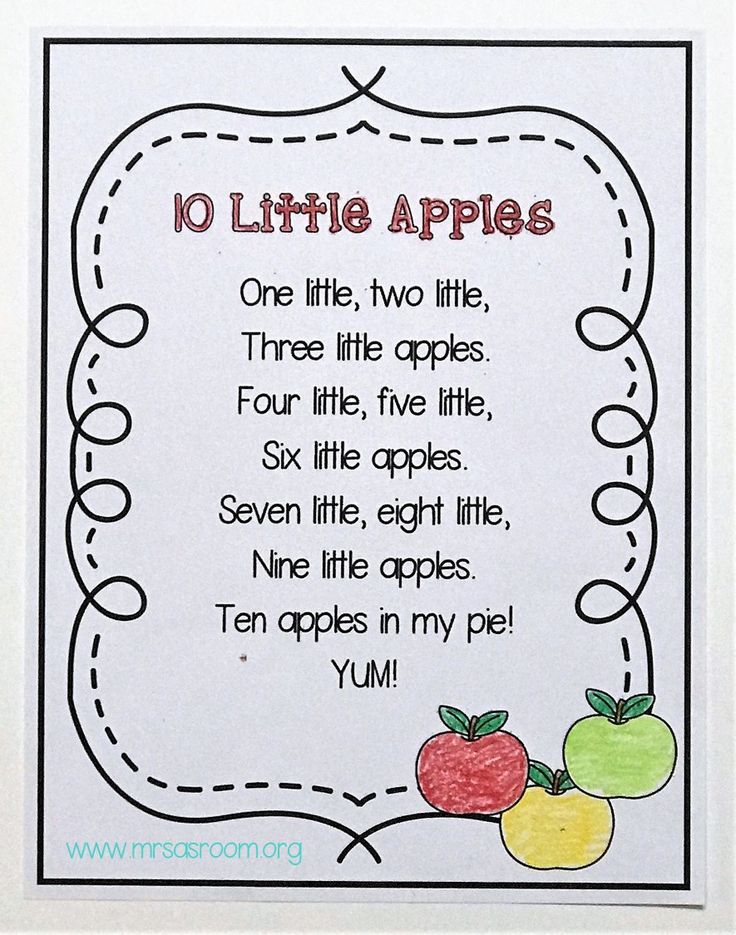Dealing with jealousy in friendship
How to Overcome Jealousy in a Friendship
“Is it normal to feel jealous of my friend’s relationships with other people? My best friend has another best friend who she has been spending more time with, and I am worried she likes her more than me. Should I talk about this with her, or do I just need to get over it on my own?”
Jealousy is a normal emotion you experience when there is someone (or something) that feels like it could come between you and someone you care about. Feeling insecure or threatened can lead to feelings of jealousy, even among friends.[1][2] Because jealousy is an intense emotion, it can be hard to overcome, and it can also lead people to say or do things that damage their friendships.
In this article, you will learn more about jealousy in friendships, when and why it shows up, and how to overcome it.
10 ways to overcome jealousy in a friendship
Experiencing jealousy in a friendship is normal, especially in close friendships that are really important to you. What you do when jealous thoughts and feelings come up can determine how intense your jealousy is, how long it lasts, and the damage it does to your friendship. Below are 10 tips on how to cope with jealousy and keep it from coming between you and your friend.
Advertisements
1. Accept your jealous thoughts and feelings
Putting a lot of effort into trying to stop, change, or suppress a negative thought or feeling usually doesn’t work. These efforts can leave you feeling frustrated, exhausted, and sometimes even more emotional. Judging yourself for being jealous can also make things worse by adding shame, guilt, and anger into the mix.
Research shows that being willing to accept and experience difficult emotions like anger, jealousy, or sadness is the best way to overcome them. People who accept negative emotions describe being able to work through them more quickly and are less likely to make bad choices when they’re upset.[7][8] The next time you feel jealous, remind yourself that these feelings are normal, valid, and ok to have, instead of fighting them.
2. Don’t feed the jealous feeling
Rumination is one of the bad habits that intensifies jealousy and can also make you more likely to do or say something you regret.[7] Repeating and focusing on angry, jealous, negative thoughts is one of the main ways that you may be making your jealousy worse. Thoughts like these feed into negative emotions, making them bigger, stronger, and more lasting.[8]
Advertisement
Traditional therapy - done online
Find a therapist from BetterHelp's network of therapists for your everyday therapy needs.
Take a quiz, get matched, and start getting support via phone or video sessions.
Their plans start at $64 per week. Use the button below to get 20% off your first month at BetterHelp + a $50 coupon valid for any SocialSelf course. To receive your $50 SocialSelf coupon, sign up for BetterHelp using the orange button. Email the order confirmation to SocialSelf to get your unique coupon code.
Start BetterHelp's quiz
Some of the thoughts that can feed into jealousy are:
- Comparisons you make between you and your friend
- Ruminating on your insecurities, flaws, or shortcomings
- Assuming a friend likes someone else more than you
- Rehearsing fights or arguments in your mind with a friend
- Being overly critical of someone else your friend likes
When these kinds of thoughts show up, refocus your attention on something else by focusing on your body, your surroundings, or by using your 5 senses to become more present. These simple mindfulness skills can interrupt the rumination cycle, helping you to calm down more quickly.[7]
These simple mindfulness skills can interrupt the rumination cycle, helping you to calm down more quickly.[7]
3. Identify your underlying fears and insecurities
Jealousy is normally linked to fears and insecurities you have about yourself or your friendship. By identifying these, you can better understand your jealousy, where it comes from, and why it is showing up in that situation.
Some examples of common underlying issues that can cause jealousy include:
- Fears of being replaced
- Fears of being abandoned
- Fears of being betrayed or hurt
- Insecurity about the strength of your friendship
- Feeling unworthy, unlovable, or “less than”
- Not feeling valued or prioritized by a friend
- Worries about loss of trust or closeness
Often, these insecurities have more to do with what you think and feel about yourself or your friendship rather than what your friend thinks. In some cases, your fears are more about past betrayals in other relationships than they are about your current friendship. When jealousy comes from past issues or personal insecurities, boosting your self-esteem or dealing with your own insecurities may be needed to overcome these feelings.
When jealousy comes from past issues or personal insecurities, boosting your self-esteem or dealing with your own insecurities may be needed to overcome these feelings.
A recommendation
If you want to improve your social skills, self-confidence, and ability to bond, take our 1-minute quiz.
You get 100% free personalized tips based on your results.
Start the quiz
4. Separate real and imaginary threats
Sometimes, jealousy comes up in response to real threats. Other times, the threat is imaginary. Real threats can indicate a trust issue or conflict in your friendship and may need to be openly addressed and resolved with your friend. Imaginary threats are more likely to reflect personal issues and insecurities and often should be worked through on your own.
Some of the questions to consider when assessing whether a threat is real or not include:
Advertisements
- What do I feel threatened by?
- Is this really a threat to me or my friendship?
- Do I have any proof that this is a threat?
- What role are my own fears and insecurities playing?
- Would an outside person agree with my assessment?
5.
 Steady your emotions
Steady your emotionsActing on jealous thoughts and feelings can lead you to say or do things that damage your friendship.[5][6] You are most likely to say or do something hurtful when your feelings are strongest and most intense, so it’s important to learn ways to calm down.
These strategies can prepare you to have a calm, productive conversation with a friend, but they can also be used to work through jealous feelings on your own:
- Take slow, deep breaths and imagine releasing tension when you exhale
- Use one or more of your 5 senses to direct your attention to your surroundings
- Use a journal or talk with someone you trust to vent about your feelings
- Take some time and space to let the feelings pass before calling or seeing your friend
6. Talk openly with your friend
Open conversations are needed when there is a real issue, threat, or problem in a friendship, but it’s important to approach this conversation the right way.
The best way to approach difficult conversations is to:
- Take time and space to calm down before having the conversation. Wait until the most intense feelings have passed and you feel able to speak calmly.
- Reflect on main points you want to bring up in the conversation. Think about the specific things you want your friend to know about how you feel.
- Identify a “goal” for the conversation that is within your control. Consider a goal of communicating your feelings or needs vs. getting them to agree or apologize.
- Use “I-statements” to let your friend know how you feel and what you need from them. Use the template, “I felt _______ when you _______ and I would really like it if you ______.”
- Be willing to forgive your friend, let go and move on after the conversation, even if it didn’t go perfectly.
7. Develop a realistic but positive attitude
Jealousy often arises from negative thoughts about yourself, another person, or your friendship. When you intentionally focus on the positives instead of the negatives, it can cause a positive emotional shift.[8]
When you intentionally focus on the positives instead of the negatives, it can cause a positive emotional shift.[8]
Feelings of anger, fear, and jealousy can often be overcome by focusing on positive thoughts like these:
Advertisements
- Listing out your personal strengths, successes, and talents
- Identifying the things you most admire, respect, and like about your friend
- Finding things in common with other people instead of focusing on differences
- Remembering good times and happy memories with your friend
- Thinking of times your friend has been there for you when you needed them
8. Be kind to yourself
Research shows that self-compassionate people are less prone to jealousy and also are less likely to struggle with anxiety, depression, and insecurities. People who are kind to themselves also have higher levels of self-esteem and tend to have healthier relationships.[8][9]
Self-compassion is something that can be learned and practiced by making small changes like these:
- Become more aware of your feelings, wants, and needs, and prioritize these
- Pull back from negative or self-critical thoughts instead of ruminating on them
- Make time in your schedule for self-care, relaxation, and activities you enjoy
- Lighten up about mistakes and flaws, and remind yourself all humans are imperfect
- Stand up for yourself and set boundaries when you’re being disrespected
9.
 Focus on self-improvement
Focus on self-improvementIf you feel jealous of a friend’s success or happiness, this may be an indication that you’re unhappy with your own circumstances. If you were feeling truly content with yourself and your life, it would be easier to feel truly happy for a friend who is doing well instead of feeling jealous or insecure.
Jealousy can uncover areas of yourself and your life that need attention and improvement. Focusing on setting goals that would improve the way you feel about yourself and your life can boost your self-esteem, making you less vulnerable to jealousy.[9]
10. Strengthen your friendship
Jealousy comes up during times when you feel threatened or worried about being replaced, hurt, or betrayed by a friend. This is why you may be especially jealous when you are particularly scared of losing someone. There are many ways to strengthen a friendship, and these will often result in feeling more secure (and less jealous).
Article continues below.
Take this quiz and see how you can make new friends
Take this quiz and get a custom report based on your unique personality and goals. Learn how YOU can be better at connecting and turning people into close friends.
Start the quiz.
Here are some ideas of how to strengthen a friendship:[10]
- Express out loud how much you care about them and value their friendship
- Send a thoughtful card, message, or text to let them know you’re thinking of them
- Offer to help them on a project they are working on
- Tell them you miss them and suggest ideas to see each other more
- Check in more and offer support when they’re going through a hard time
- Open up about sensitive, personal, or emotional issues to build trust and closeness
- Show interest in things they like and care about
- Spend quality time together doing fun things you both enjoy
Jealousy in friendships
Jealousy is an emotional response that occurs when a person believes a relationship is being threatened by an outside person, activity, or situation. Jealousy often involves a mix of anger towards the “rival” or threat, personal insecurity and self-doubt, and a fear of being replaced.[1][2] Jealousy can arise when there is an actual threat to a friendship, but it can also be an irrational response to a perceived threat.
Jealousy often involves a mix of anger towards the “rival” or threat, personal insecurity and self-doubt, and a fear of being replaced.[1][2] Jealousy can arise when there is an actual threat to a friendship, but it can also be an irrational response to a perceived threat.
Some of the common triggers for jealousy in friendships include:[3]
- A friend having other friends or close ties with their partner or family members
- A friend starting a new romantic relationship
- A new activity, hobby, or job that takes up a lot of time
- Any person who seems to have a lot of influence or importance to a friend
- Comparisons made between a person and their friend (e.g., how popular/attractive/successful their friend is compared to them)
Jealousy is more likely to occur in close friendships and also in new friendships where trust and closeness are still developing.[4] Unlike many romantic or sexual relationships, friendships aren’t expected to be exclusive, meaning it’s OK for friends to have other friends. This can cause people to feel confused, upset, and even ashamed of jealous feelings towards a friend.[2]
This can cause people to feel confused, upset, and even ashamed of jealous feelings towards a friend.[2]
Advertisement
Destructive responses to jealousy
Jealousy can be an indication that you really care about someone and value your friendship with them. Still, some of the ways you react to jealous thoughts and feelings can affect you, the other person, and your friendship in negative ways.
When you allow jealousy to change the way you interact with a friend, it can lead you to say or do things that push your friend away or damage the relationship. Using healthy coping skills and direct communication protects against this damage and can even lead to conversations and actions that strengthen a friendship.[1]
Some common responses to jealousy that damage trust and closeness in a friendship are:[5][6]
- Avoidance: Pushing your friend away, distancing yourself, or shutting down
- Threats: Making threats to end the friendship or do something to hurt your friend
- Ultimatums: Demanding that your friend choose between you and someone else
- Passive aggression: Refusing to talk openly about how you feel but expressing it indirectly through your mood or behavior
- Denial: Pretending everything is fine, ignoring the issue, not addressing it
- Control: Becoming possessive or controlling of your friend’s other relationships, schedule, or choices
- Manipulation: Guilting your friend or trying to make them feel bad for hanging out with other friends or spending time away from you
- Badmouthing: Talking badly about other people or activities that matter to your friend
- Reversal: Trying to make your friend feel threatened, insecure, or jealous to get back at them or make them feel the way you do
Final thoughts
Most people assume jealousy only comes up in romantic relationships, but it’s also really common in friendships. [1][2] Jealousy normally shows up when a person feels insecure, threatened, or worried about losing a friend. Learning how to cope with jealousy and talking openly with friends can help you overcome jealousy and can keep it from hurting your friendships.
[1][2] Jealousy normally shows up when a person feels insecure, threatened, or worried about losing a friend. Learning how to cope with jealousy and talking openly with friends can help you overcome jealousy and can keep it from hurting your friendships.
Advertisement
Consider online therapy
Online therapy allows you to speak to a licensed therapist in the comfort of your home.
BetterHelp offers support via phone or video at $64 per week.
Use the link below to get 20% off your first month at BetterHelp + a $50 coupon valid for any SocialSelf course. To receive your $50 SocialSelf coupon, sign up for BetterHelp using the link below. Email the order confirmation to SocialSelf to get your unique coupon code.
Click here to learn more
Common questions
Here are answers to some of the most common questions people have about jealousy in friendships and ways to overcome it.
Article continues below.
What type of social overthinker are you?
Take this quiz and get a custom report based on your unique personality and goals.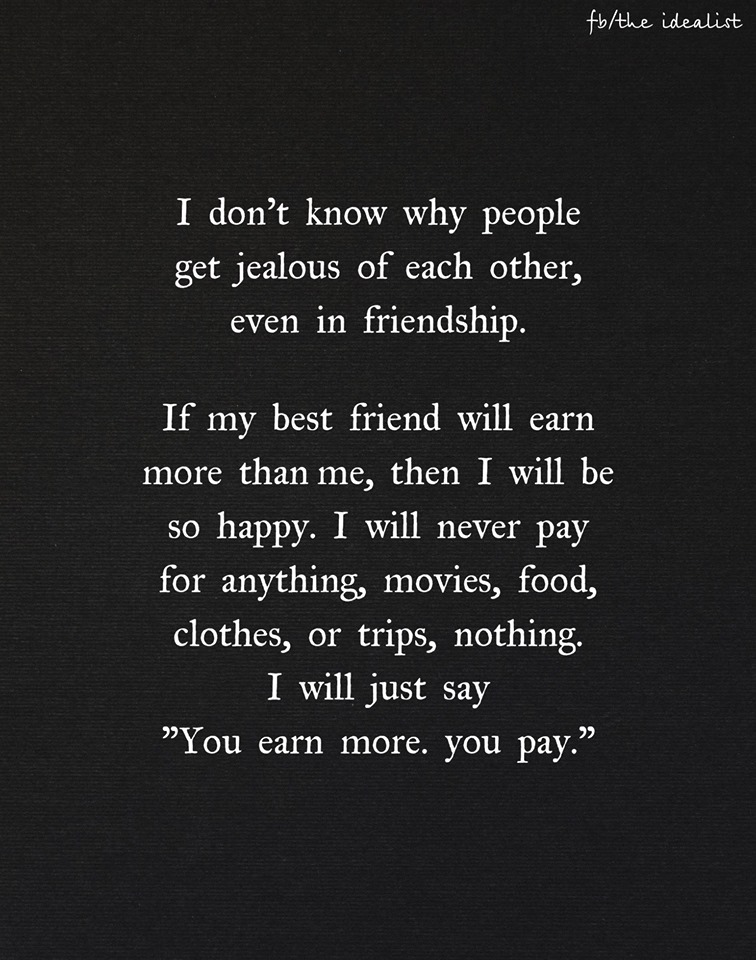 Start improving your confidence, your conversation skills, or your ability to bond - in less than an hour.
Start improving your confidence, your conversation skills, or your ability to bond - in less than an hour.
Start the quiz.
Is jealousy normal in friendship?
Jealousy is a normal emotion people can feel in any close relationship, including friendships. Jealousy is more common in close friendships, new friendships, and in situations where a person feels threatened or insecure.[1][2]
Why do I get so jealous of my friends?
Personal insecurities can cause people to become jealous of their friends. Insecurities about money, your job, relationship status, or appearance can cause you to become jealous of other people, including friends.[3]
What are the signs of a jealous friend?
Because people deal with jealousy differently, the signs of jealousy aren’t the same for everyone. Some jealous friends will withdraw or distance themselves from you, while others may become competitive, defensive, or even mean.[5]
Why do I attract jealous friends?
Having a lot of jealous friends may just mean you have a lot of insecure friends, as people with low self-esteem are more prone to jealousy. [9] Not setting good boundaries with friends can also create imbalanced, codependent relationships where jealousy is more likely.
[9] Not setting good boundaries with friends can also create imbalanced, codependent relationships where jealousy is more likely.
What causes jealousy between friends?
Insecurity is usually what causes jealousy. A jealous person may struggle with personal insecurities and low self-esteem, or they may have relationship insecurities that cause them to become jealous.[1][2][9]
Show references +
Advertisements
References
- Krems, J. A., Williams, K. E. G., Aktipis, A., & Kenrick, D. T. (2021). Friendship jealousy: One tool for maintaining friendships in the face of third-party threats? Journal of Personality and Social Psychology, 120(4), 977–1012.
- Aune, K. S., & Comstock, J. (1991). Experience and Expression of Jealousy: Comparison between Friends and Romantics. Psychological Reports, 69(1), 315–319.
- Bevan, J. L., & Samter, W. (2004). Toward a broader conceptualization of jealousy in close relationships: Two exploratory studies.
 Communication Studies, 55(1), 14-28.
Communication Studies, 55(1), 14-28. - Worley, T. R. (2009). Jealousy in triadic relationships: A relational turbulence approach. Doctoral dissertation, University of Georgia.
- Guerrero, L. K., Andersen, P. A., Jorgensen, P. F., Spitzberg, B. H., & Eloy, S. V. (1995). Coping with the green‐eyed monster: Conceptualizing and measuring communicative responses to romantic jealousy. Western Journal of Communication, 59(4), 270–304.
- Guerrero, L. K. (2014). Jealousy and relational satisfaction: Actor effects, partner effects, and the mediating role of destructive communicative responses to jealousy. Western Journal of Communication, 78(5), 586-611.
- Ford, B. Q., Lam, P., John, O. P., & Mauss, I. B. (2018). The psychological health benefits of accepting negative emotions and thoughts: Laboratory, diary, and longitudinal evidence. Journal of Personality and Social Psychology, 115(6), 1075–1092.

- Tandler, N., & Petersen, L. E. (2020). Are self-compassionate partners less jealous? Exploring the mediation effects of anger rumination and willingness to forgive on the association between self-compassion and romantic jealousy. Current Psychology, 39(2), 750-760
- Seeman, M. V. (2016). Pathological jealousy: An interactive condition. Psychiatry, 79(4), 379-388.
- Tillmann-Healy, L. M. (2003). Friendship as Method. Qualitative Inquiry, 9(5), 729–749.
Join our free training and learn these 5 secrets to making friends
- Learn to get past shallow small talk.
- Know where to find people who are more like you
- Improve socially without doing weird out-of-your-comfort-zone stunts.
- Learn why people who "don't try" often are so socially successful.
- See how you can go from boring to bonding in less than 7 minutes.
Start my free training
How to Cope When You’re Envious of a Friend
Source: Joshua Sazon
When it comes to the majority of the challenges we experience in our friendships, there is an interpersonal dynamic at play– a betrayal, a conflict, an argument, a concern. That’s why feeling envious of a friend can be a fairly unique situation.
That’s why feeling envious of a friend can be a fairly unique situation.
The difference is that it’s entirely possible to feel sad, upset, disappointed, or even angry with a friend when they technically have not actually said or done anything hurtful or wrong. Of course, there are those who make things more difficult by being boastful, competitive, or seemingly oblivious to our difficulties and dreams. But it’s also possible to struggle with envy when a friend has been nothing but kind, considerate, and supportive.
Feelings of envy can become particularly salient as we move through life. The older we get, the more likely our paths will diverge from those of our friends, and the more aware we can be of the things we long for – a lasting relationship, a family, financial security, professional success, the ability to travel, a clean bill of health. Social media certainly does not make it any easier. Every day, we are exposed to a carefully curated representation of our friends’ and acquaintances’ lives. It’s overwhelmingly positive and inescapable (not to mention unrealistic). It’s enough to make almost anyone feel twinges of envy from time to time.
It’s overwhelmingly positive and inescapable (not to mention unrealistic). It’s enough to make almost anyone feel twinges of envy from time to time.
The Problem with Envy
Although envy and jealousy are often used interchangeably, they represent distinct, albeit related, emotional experiences. At its core, envy is a cluster of feelings, thoughts, or behaviors that come about when someone else, including a friend, has something (or someone) we desire. Jealousy, in contrast, occurs when we feel as though someone we are close to is interested or invested in another person.
When we feel envious or jealous, it’s not uncommon for other difficult emotions to creep up, including sadness, anger, resentment, anxiety, and shame. And while it’s perfectly normal to compare ourselves to our friends from time to time, getting caught up in social comparisons can take a serious toll on our happiness, self-esteem, and overall satisfaction with life. The more preoccupied we become with a friend’s success or good fortune, the easier it is to question things like our self-worth or the fairness of the world we live in. When envy becomes more pervasive, it can make us act out in unexpected ways, like distancing ourselves from friends or being passive-aggressive. Not only can this create conflict, it also takes away the closeness we should feel in our most secure friendships.
When envy becomes more pervasive, it can make us act out in unexpected ways, like distancing ourselves from friends or being passive-aggressive. Not only can this create conflict, it also takes away the closeness we should feel in our most secure friendships.
Even though it can be uncomfortable (some might even say ugly), envy is an understandable, valid emotion. And it does not necessarily need to create problems in our friendships.
How to Cope with Friendship Envy
1. Practice self-compassion.
Unfortunately, many of us tend to judge ourselves harshly for experiencing what is simply part of the normal range of human emotions. Being self-critical, by telling yourself you are a “bad” friend or that you’re being overly sensitive or ungrateful, only makes the situation more difficult. It also creates room for other uncomfortable emotions, like anxiety and shame.
Instead of being hard on yourself, practice self-compassion for your feelings, as well as whatever it is you are struggling with. Engaging in positive self-talk—What would you say to a friend who was struggling with envy?—or finding an affirmation or self-care routine might sound like band-aid solutions, but they can bolster your self-esteem and ability to cope with hardship. It’s also important to normalize your experiences. It’s understandable to feel upset when the thing you want so badly is in someone else’s hands, especially when that person is a friend and someone with whom you identify so closely. And conflicting emotions are difficult but common: Just because you are sad for yourself does not mean you aren’t able to feel happy for or proud of your friend. Allow yourself to fully experience, accept, and even embrace this range of emotions without judgment.
Engaging in positive self-talk—What would you say to a friend who was struggling with envy?—or finding an affirmation or self-care routine might sound like band-aid solutions, but they can bolster your self-esteem and ability to cope with hardship. It’s also important to normalize your experiences. It’s understandable to feel upset when the thing you want so badly is in someone else’s hands, especially when that person is a friend and someone with whom you identify so closely. And conflicting emotions are difficult but common: Just because you are sad for yourself does not mean you aren’t able to feel happy for or proud of your friend. Allow yourself to fully experience, accept, and even embrace this range of emotions without judgment.
2. Use envy as motivation.
It might seem like there is little value in feeling envious, but it can be a powerful force for change. When we’re in tune with and willing to accept the discomfort it brings, envy can point us toward our values and goals and motivate us to take action. If you have mixed emotions about a friend’s exciting new job, perhaps this is a sign that you should make the career change you’ve contemplated? Envious of a friend’s relationship status or social skills? Use it as motivation to engage more fully in dating or making friends. Channeled this way, envy is actually kind of adaptive; it’s a compass that can keep us on track, as long as we are willing to listen.
If you have mixed emotions about a friend’s exciting new job, perhaps this is a sign that you should make the career change you’ve contemplated? Envious of a friend’s relationship status or social skills? Use it as motivation to engage more fully in dating or making friends. Channeled this way, envy is actually kind of adaptive; it’s a compass that can keep us on track, as long as we are willing to listen.
3. Interrupt envy with gratitude.
When we're upset with our circumstances, it can be more difficult to practice gratitude. The reality, however, is that these are the moments when we need it the most. Gratitude is not about ignoring what we desire, but choosing to focus on the things we do have that bring us value or joy. Focusing on your appreciation for knowing the value of a dollar or your work ethic when you're envious of a friend's financial situation can make conversations much less triggering. Instead of feeling envious of a friend’s appearance, focus on the things you like about yourself, or the fact that you have a body that allows you to exercise. It might seem simple, but finding a sustainable way to practice gratitude can increase your satisfaction with life as well as your relationships.
It might seem simple, but finding a sustainable way to practice gratitude can increase your satisfaction with life as well as your relationships.
It also helps to appreciate the moments when you feel that your friend is being sensitive to your situation or feelings. These can be easy to overlook when we're struggling. Not only is this a good exercise in gratitude, it will also help you feel supported and connected and keep feelings of envy from coming between you.
4. Use envy as an opportunity for connection.
We tend to keep feelings of envy a secret (especially from those we are envious of). Although discussing these experiences can be difficult, not to mention awkward, holding them in can make us feel increasingly distressed and disconnected. Sharing feelings of envy might be done in an effort to explain why you've been distant or even irritable. It can also be a way to propose small changes that might make things feel less triggering or upsetting (e. g., avoiding certain topics or suggesting less expensive activities). Whatever the reason, when approached carefully, being open can help you process your feelings of envy or resentment, find new ways to cope, and even bring you closer together.
g., avoiding certain topics or suggesting less expensive activities). Whatever the reason, when approached carefully, being open can help you process your feelings of envy or resentment, find new ways to cope, and even bring you closer together.
That said, the decision whether and how to discuss feelings of envy is personal and polarizing. For some it feels necessary, for others inappropriate. As much as possible, broach the conversation at a time when you can speak privately and not feel rushed. Refrain from blaming your friend, and be open to their take on things. Hearing that someone is envious of us can feel particularly awkward or uncomfortable, regardless of whether it's something we have control over. But saying something like: "I know I've been a little distant lately and I wanted you to know that it's because I've been struggling with..." or "I want you to know that I'm really happy for you. It's just hard for me because..." can be the starting point for a meaningful conversation that will ultimately strengthen your friendship.
5. Create boundaries.
In some cases, it might be necessary to establish certain boundaries to protect yourself, as well as your friendship. Are there topics, settings, or activities that invariably lead to feelings of envy? It's perfectly appropriate to take some time for yourself or to focus your interactions on the things that bring you closer together, instead of those that drive you apart. Doing so might actually be the thing that saves your friendship. It also helps to remember that boundaries or limits like these can be fluid. With time and the changes that life inevitably brings, you might surprise yourself with your willingness to connect over things that previously made you feel envious or resentful.
6. Shift your perspective.
When few things work, adjusting our perspective can be helpful, not to mention necessary. Part of the reason why envy can be so destructive is because of the unrealistic ideas we hold. That's why it helps to aim for a more realistic understanding of, and approach to, envy itself. Online, and even in the context of our closest relationships, there is little discussion of life’s difficult and darker moments — breakups, fertility problems, illnesses, and mental health struggles. We tend to showcase and discuss the highlights of our lives, while omitting the low or even mundane points. Gently remind yourself that, although not always distributed evenly, everyone faces struggles and hardship. And there might be aspects of your own life that your friends envy greatly.
Part of the reason why envy can be so destructive is because of the unrealistic ideas we hold. That's why it helps to aim for a more realistic understanding of, and approach to, envy itself. Online, and even in the context of our closest relationships, there is little discussion of life’s difficult and darker moments — breakups, fertility problems, illnesses, and mental health struggles. We tend to showcase and discuss the highlights of our lives, while omitting the low or even mundane points. Gently remind yourself that, although not always distributed evenly, everyone faces struggles and hardship. And there might be aspects of your own life that your friends envy greatly.
It also helps to see envy as an opportunity for growth, which can absolutely be a tough pill to swallow (especially when we feel as though the idea is being forced on us). However, doing so can open your eyes to silver linings, moments, and opportunities that might not have been obvious initially, like the chance to learn more about yourself or to connect with your friend over something deeply personal and meaningful.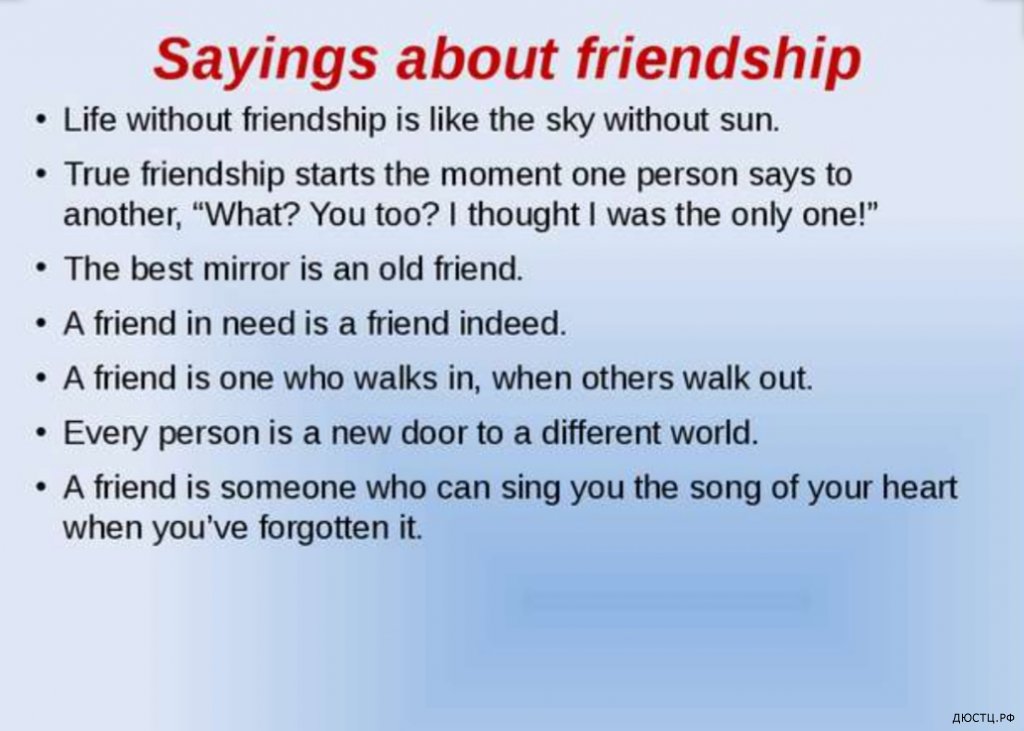
Why jealousy arises in friendship and how to get rid of this destructive feeling
Psychology
From childhood, the opportunity to compete with someone, whether it be their own father or grandmother, does not arouse much enthusiasm in infants. You feel the first injections of jealousy and try to solve the problem with a hysterical roar.
Growing up, you expand the circle of attachments. Favorite nannies, aunts, uncles appear and - finally! - true friends. Among the peers met in the sandbox or kindergarten group, by the will of mutual attraction you determine those to whom you once confess: “you are my most beloved friend”, and, driven by the same jealousy, complete the phrase: “and I don’t want you to play with Galya (Nina, Light)".
Jealousy is a side effect of love, a projection of the possessive instinct that evolution has built into human genes. Treatises of philosophers and literary examples from different eras confirm that jealousy - in love, family relationships or friendship - is a destructive phenomenon and usually does not lead to good. What is worth knowing in order to overcome this destructive feeling and learn how to manage it?
What is worth knowing in order to overcome this destructive feeling and learn how to manage it?
Psychological causes and types of jealousy in friendship
“Before you fight jealousy, you need to determine where this feeling comes from and which of its varieties prevents you from living,” comments Evgenia Smolenskaya, clinical psychologist at Mental Health Center. “Jealousy can be divided into three main types: possessive jealousy, out of envy of who you are friends with, and stimulated in a toxic relationship.”
Possessive jealousy is the most common form of friendship. This form of jealousy occurs when you are annoyed that a girlfriend/boyfriend spends time with other people, giving them too much attention. Of the three types of jealousy, this variety most closely resembles the feeling you experience in a love affair, when you feel like your partner is looking for companionship and being overly generous with empathy for others.
“Jealousy about a friend spending time with others comes from the fear of being abandoned,” the expert explains.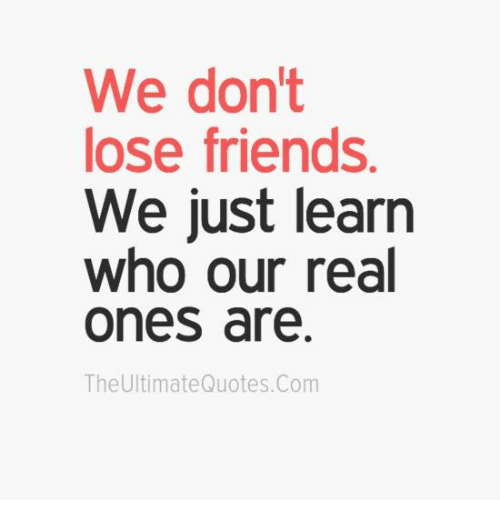 - As a rule, this feeling is stronger if the friendship is long-standing, and the depth of emotions depends on the influence of psychological trauma experienced in childhood. If jealousy literally gnaws at you, it is better to contact a specialist to find out the reasons and start working on getting rid of the problem.
- As a rule, this feeling is stronger if the friendship is long-standing, and the depth of emotions depends on the influence of psychological trauma experienced in childhood. If jealousy literally gnaws at you, it is better to contact a specialist to find out the reasons and start working on getting rid of the problem.
Another form of jealousy rhymes with envy - it is not without reason that the English language uses the same word jealousy for both definitions. This feeling forms your attraction to a particular person, motivating you to develop friendship. You want to be friends because you like her / his beauty, intelligence, charisma, success, fame, wealth. You would really like to have all this, but for now you are simply flattered to be around. Jealousy in this case is associated with self-esteem, because deep down you do not consider yourself equal to your friend and you are offended that you cannot act on an equal footing and make him / her a worthy company.
Jealousy in a toxic relationship is provoked by someone you care about.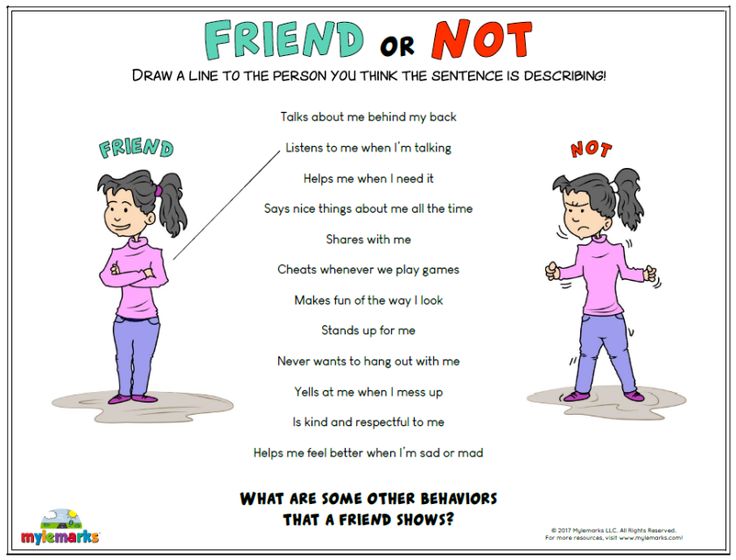 Surprisingly, this kind of friendship can last a lifetime until you notice that you are being manipulated. A friend (friend) plays on your availability and feelings - either confesses her love, then criticizes, then invades your life, persuading you to change your plans for her sake, then disappears when she pleases, ignoring the moments when you need support.
Surprisingly, this kind of friendship can last a lifetime until you notice that you are being manipulated. A friend (friend) plays on your availability and feelings - either confesses her love, then criticizes, then invades your life, persuading you to change your plans for her sake, then disappears when she pleases, ignoring the moments when you need support.
A relationship can be called toxic and codependent if you feel unhappy because your girlfriend doesn't respect your feelings and devalues your friendship. The root of the experience lies in personal fears: you are afraid of dislike and loneliness, you are jealous because you give a lot, but you do not have enough warmth received in return. But the more jealous you are, the more your friend moves away, and vice versa.
How to get rid of jealousy for the sake of friendship
According to the psychologist, in any relationship, two people are responsible for jealousy - the one who is jealous and the one who is jealous, and this pattern is no exception for friendship. Appreciate the friend's influence on your feelings. If you guess negative manipulations on his/her part, the best solution is to gradually reduce the friendship to nothing. It's never too late to take care of mental health - friendships should not test you for strength.
Appreciate the friend's influence on your feelings. If you guess negative manipulations on his/her part, the best solution is to gradually reduce the friendship to nothing. It's never too late to take care of mental health - friendships should not test you for strength.
If your jealousy is due to your personal impressions, consider the reasons that make you doubt the friendship. Working with a psychologist will speed up the process of overcoming jealousy, but with some diligence, you can manage on your own.
To begin with, remind yourself that adulthood does not lend itself to the rules of a kindergarten sandbox. Work, school, personal relationships, family care - your girlfriend / friend has a million reasons to spend less time with you. Just like you. Learn to respect the priorities - yours and those close to you. Focus on your business and goals and don't waste your nerves thinking about the distance between you and your friends.
Take the initiative to have weekly get-togethers like the famous foursome in Sex and the City did. In order for friendship to be strong and durable, it does not need daily confirmation. Mutual understanding and sincerity are the cement of not only love, but also friendships, and there is simply no reason for jealousy in such conditions.
In order for friendship to be strong and durable, it does not need daily confirmation. Mutual understanding and sincerity are the cement of not only love, but also friendships, and there is simply no reason for jealousy in such conditions.
Smirnova Natasha
Tags
- relationships
- Psychology
Friendly jealousy: why it occurs and how to get rid of it
You can recognize the signs of the behavior of friendly jealousy. As a rule, a jealous girlfriend:
-
Requires a girlfriend to tell everything about her life .
-
Expects her friend to be friends only with her/turns against other people : “You are friends with her, but do you know what she says about you behind your back?”, “Why do you communicate with her more than with me?”.
-
Obsessively emphasizes their unity : paired pendants, T-shirts or other things with your joint image and so on.
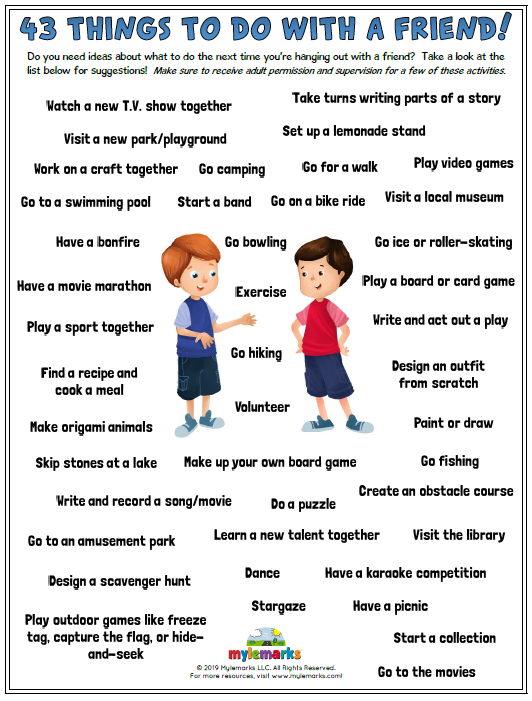
-
Scares off men or makes scenes when a girlfriend starts dating someone : “Yes, he doesn’t suit you” or “You don’t change girlfriends for men, you completely forgot about me.”
-
Often asks for help and expects her friend to immediately drop everything and rush to the rescue .
-
Strives to spend maximum time with a friend, jealous of her not only other people, but also hobbies, work . As a rule, the jealous woman herself does not have other close relationships, plans for life and hobbies. The only support in her eyes is a friend.
-
Offended if a friend has the audacity to defend her boundaries. Example : the one who is jealous posted on the Internet a photo from a meeting of friends where there was no jealousy. The latter saw this, got angry and offended. She felt abandoned, rejected, lonely, unnecessary and unworthy - worse than those who were in the photo ( read also: "I'm better: what we constantly compete with other women in").
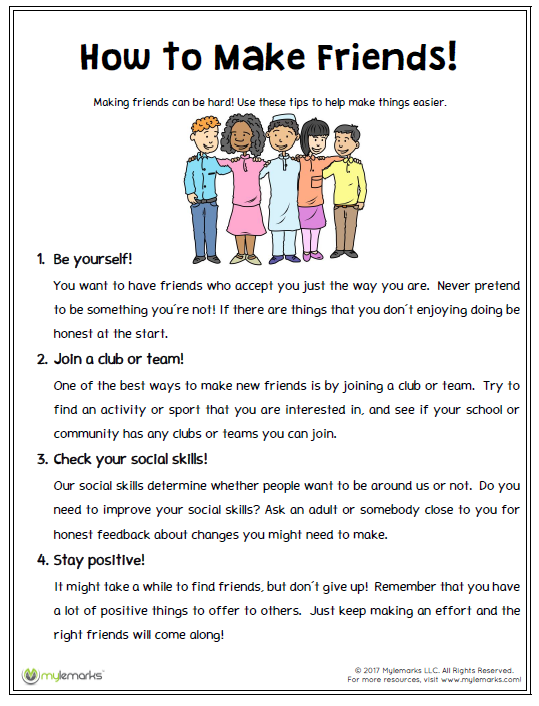
In general, manifestations of friendly jealousy are not much different from jealousy in love relationships. Sometimes from a girl who is jealous, you can even hear: “It feels like you and I are married.” Or she jokingly calls the jealous woman her husband: “Yes, let's meet, only so that the“ husband ”does not recognize, otherwise the brain will endure again.” By the way, this tactic is destructive. If you want to improve relationships, help yourself and your girlfriend, then you should not ignore jealousy or go for such tricks. So you wallow in toxicity. You need to recognize the problem and work with it “in a live way”.
Why does friendly jealousy arise?
There are three main causes of friendly jealousy.
Reason 1. Projection of relations with mother. Jealousy between girlfriends is often associated with projections of relations with her mother — a girl in her childhood did not receive enough love and attention.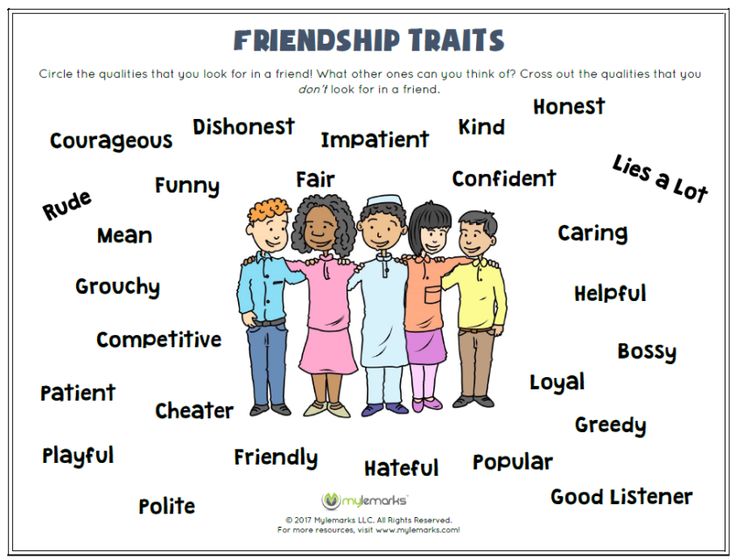 She was attached to her mother, but did not experience the same feelings from her parent. As a result, the girl grew up with a sense of her “wrongness”. Example : the mother did not want to take care of her daughter, she was busy building a career and personal life. The girl tried with all her might to get the attention and love of her mother, but she realized that she was losing the “war” with other people or other external factors. Mom never chose her. The girl grew up, but the attitude “I am worse than others”, distrust of her mother and doubts about her love remained. This resulted in distrust and jealousy in relationships with girlfriends ( see also: “Coming from childhood: 4 psychological traumas that break our lives”).
She was attached to her mother, but did not experience the same feelings from her parent. As a result, the girl grew up with a sense of her “wrongness”. Example : the mother did not want to take care of her daughter, she was busy building a career and personal life. The girl tried with all her might to get the attention and love of her mother, but she realized that she was losing the “war” with other people or other external factors. Mom never chose her. The girl grew up, but the attitude “I am worse than others”, distrust of her mother and doubts about her love remained. This resulted in distrust and jealousy in relationships with girlfriends ( see also: “Coming from childhood: 4 psychological traumas that break our lives”).
Reason 2. The habit of being in close relationships. Jealousy between girlfriends is not always associated with projections. It happens that girls who have been friends all their lives get married and go headlong into family and work, see each other less, and against this background, one begins to be jealous of the other.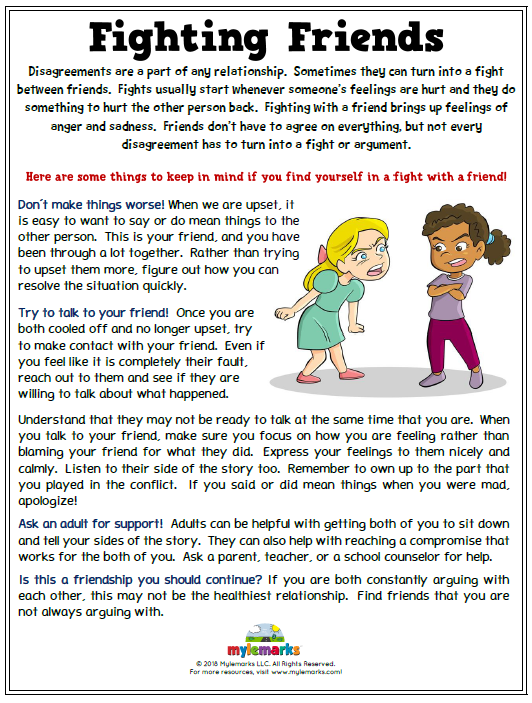 This is due to the fact that she is used to being in very close relationships. Imagine: all your life you have been walking side by side, helping each other, sharing joys and sorrows, and now this is not there. It seems that you have lost a part of yourself. Such experiences are understandable, but you need to understand that you and your girlfriend are not a single organism, but two independent individuals. Each of you has your own needs, interests and desires. The fact that as you grow older, you began to see each other less often, does not mean that closeness has disappeared between you.
This is due to the fact that she is used to being in very close relationships. Imagine: all your life you have been walking side by side, helping each other, sharing joys and sorrows, and now this is not there. It seems that you have lost a part of yourself. Such experiences are understandable, but you need to understand that you and your girlfriend are not a single organism, but two independent individuals. Each of you has your own needs, interests and desires. The fact that as you grow older, you began to see each other less often, does not mean that closeness has disappeared between you.
Cause 3. Negative settings. The last common cause of jealousy is negative attitudes. For example, that all friends betray. It can be associated with personal negative experience (the girl faced betrayal) or imposed (adults suggested that no one should be trusted).
Step-by-step plan to get rid of jealousy
What to do if you are jealous of a girlfriend:
Step 1.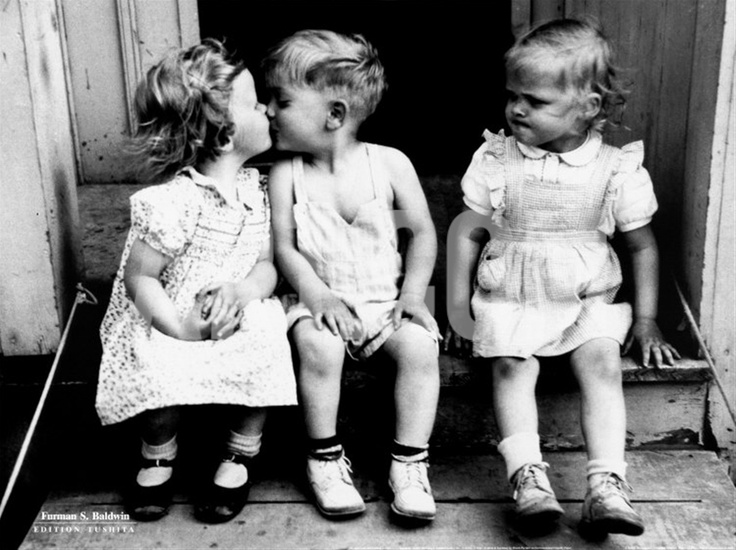 Think about the situations in which jealousy arises, what feelings it is accompanied by and what it is actually connected with.
Think about the situations in which jealousy arises, what feelings it is accompanied by and what it is actually connected with.
Step 2. Talk honestly about everything with a friend. Tell about your experiences, but not in the format “You push me away all the time”, but through I-statements. For example : “I feel lonely when we don't communicate for a long time. I would like to see you more often."
Step 3. Ask about her feelings and what she wants. Respect not only your desires, but also hers. Together, define a new relationship model that works for both of you, and stick to it. Add traditions. For example, meet once a week or call up every evening.
Step 4. If you feel jealous again, go back to the first step. Keep working on yourself.
Jealousy arises when one person lacks attention, love and care from another. This feeling can be both real, that is, one friend treats the other with disdain, and far-fetched (a friend maintains closeness and is interested in the life of another girl, but at the same time respects her boundaries).


